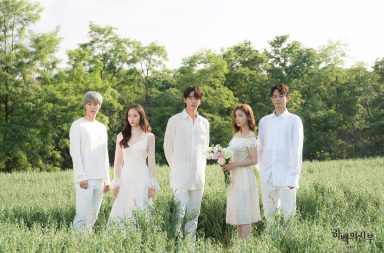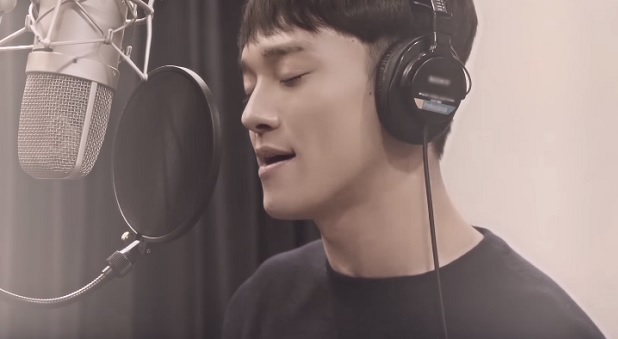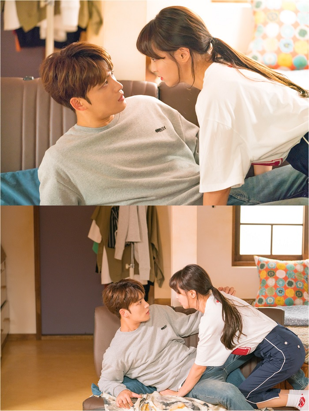 Unrequited love – a concept not foreign in the world of romantic K-dramas. We’re all used to the conventional character who tries his best but doesn’t get the girl; this familiar, repeating subplot of unreciprocated love comes up in most dramas without fail. Even though the main plot of these dramas may be perfect – guy falls in love with girl, they have problems getting together, they overcome problems, and then they manage to live happily ever after – it’s the subplots that brings each drama its distinctive flavor and appeal.
Unrequited love – a concept not foreign in the world of romantic K-dramas. We’re all used to the conventional character who tries his best but doesn’t get the girl; this familiar, repeating subplot of unreciprocated love comes up in most dramas without fail. Even though the main plot of these dramas may be perfect – guy falls in love with girl, they have problems getting together, they overcome problems, and then they manage to live happily ever after – it’s the subplots that brings each drama its distinctive flavor and appeal.
Other than the main storyline that revolves around the lead characters, it’s also the subplots that keep us intrigued, despite the angst or sadness they may cause. This doesn’t come as a surprise, of course – sometimes, even the perfectness of the main plot just doesn’t satisfy us and our heart continues to ache for the one that got away: the second lead. Despite the ideality of the main storyline, there’s a certain charm that makes us fall for the second leads, consciously choosing to suffer through grief and anguish because of them.
Otherwise known as the Second Lead Syndrome, K-dramas and their inclinations to develop heartwarming, but tear-jerking, second leads have left most K-drama fans sobbing in front of their screens. They’re the ones that make us hit our pillows and roll around in our beds with frustration. It’s the second leads which remind us that love isn’t as easy as it seems and that life doesn’t go the way we want it to, no matter how hard we try.
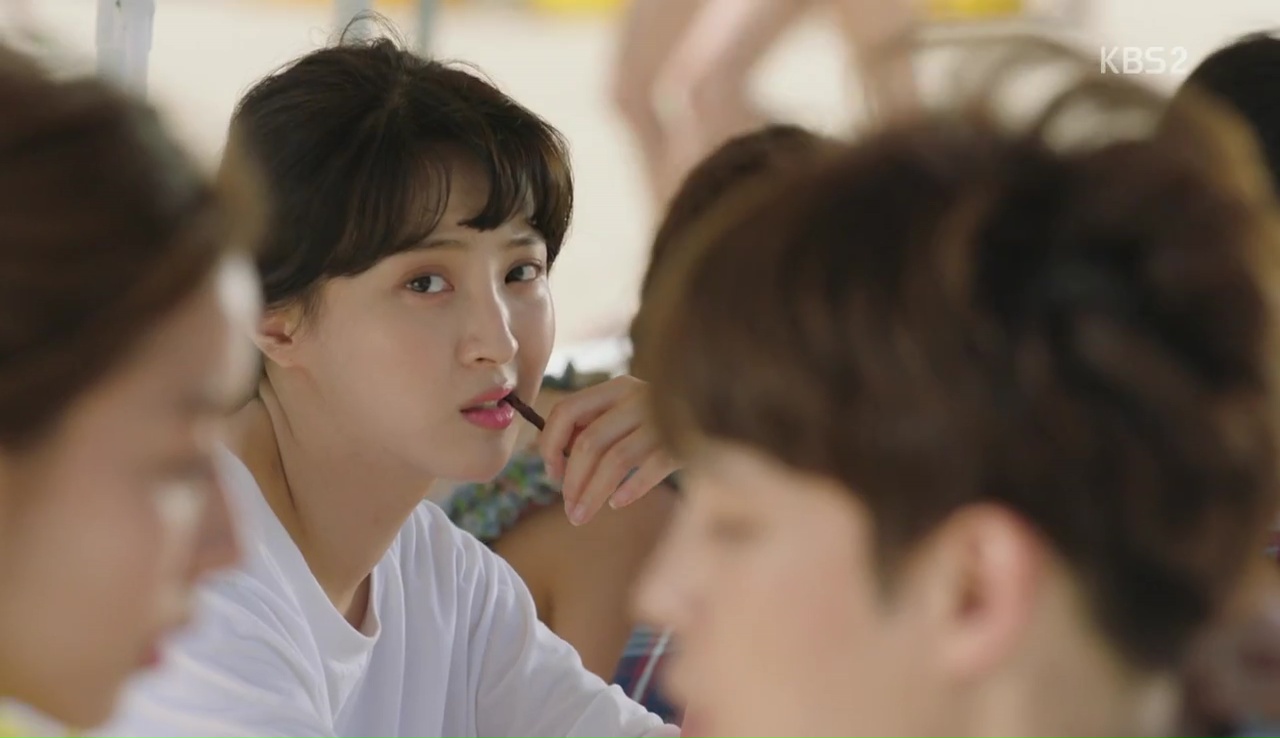 Manhole’s Yoon Jin-sook (Jung Hye-Sung) reminds of these messages all too well. Jin Sook, albeit with harsh words and punches, was a well-wisher for the lead character throughout the drama and constantly looked out for him. Having developed a crush on him since middle school, which lasted to adulthood, Jin-sook always made sure to push the lead character to do the best in whatever he did – be it working, running around or chasing the love of his life (who wasn’t Jin-sook, by the way).
Manhole’s Yoon Jin-sook (Jung Hye-Sung) reminds of these messages all too well. Jin Sook, albeit with harsh words and punches, was a well-wisher for the lead character throughout the drama and constantly looked out for him. Having developed a crush on him since middle school, which lasted to adulthood, Jin-sook always made sure to push the lead character to do the best in whatever he did – be it working, running around or chasing the love of his life (who wasn’t Jin-sook, by the way).
Like Jin-sook, school crushes who we didn’t dare to fess up to is something that most of us have experienced. Not only does it put your friendship in jeopardy, it also seems futile when the person you like likes someone else. Although Jin-sook does eventually confess, she is turned down. Her uncontrollable sobbing is what got to most of us, and was a bitter reminder of the fact that no matter how much we like someone, their feelings are their own, as much as we want to be able to influence them. What makes Jin-sook so appealing is the fact that relatable tropes are uncommon to find in K-dramas, and such identifiable characters are bound to stir up some feelings of affection in us towards them.
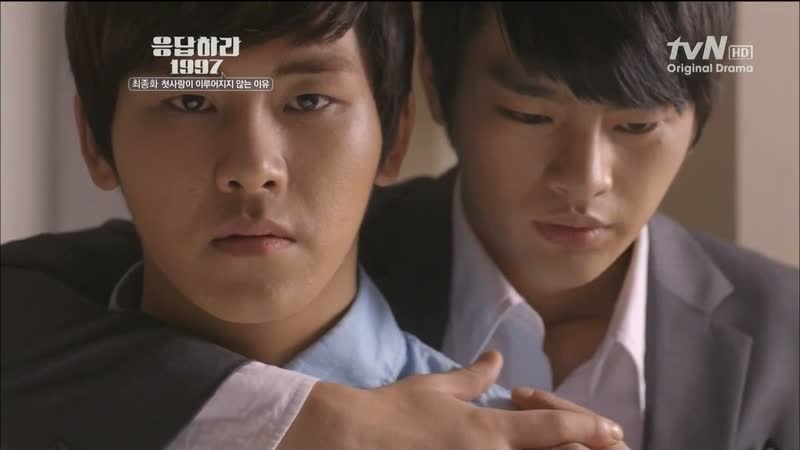
One of the reasons we’re bound to feel more engaged with the second lead than the main is definitely because of the reliability. While the second lead is portrayed as close to perfect, the aspect that evokes a sympathetic response from is them having unrequited crushes/loves whom they put before themselves. The familiarity with the fear of rejection, or rejection itself, is what attracts us to these second leads.
Hoya‘s character in Reply 1997, Kang Joon-hee, depicts this idea in the slice-of-life school drama. Reply 1997 deviated away from the norm in that the male second lead was in love with the male lead, as opposed to the more common subplot of being in love with a female disguised as a male. A sweet character not unlike Jin-sook, Joon-hee’s soft-spoken but strong character immediately endears us to him; the fact that such an amazing person would never get the guy he likes is the heart-wrenching part. Joon-hee’s quiet confession, albeit knowing his feelings would never be reciprocated, is harrowing.
Most K-dramas have clichéd and overused romantic tropes, which is why it’s no wonder that approachable and identifiable characters like Joon-hee’s call out to us. Often times, we fall for people who we know we will never have a chance with. Characters like Joon-hee’s make us feel like we aren’t alone, making us hold such characters close to our hearts.
Moreover, the second leads are usually portrayed as gentlemen. These characters may not bethe greatest people and have their own faults, for sure – they may be too direct with their words, or too strict with their crushes. Nonetheless, they have the lead character’s best interests in their hearts. Usually putting the girl (or guy) first, and themselves second, they become the personification of the ideal type of partner that one would want to have.
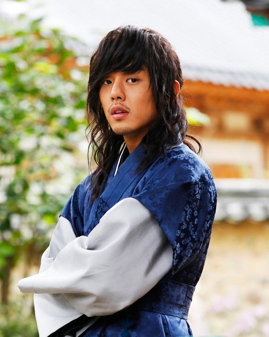
Undoubtedly, no character or person is flawless, but second leads are almost there. Sungkyunkwan Scandal‘s Moon Jae-shin (Yoo Ah-in) is an ideal model of this. A silent protector, Jae-Shin was the perfect hero. He was caring, handsome and sensible. Though he had a bit of a rebellious character, he went to great lengths to protect the heroine’s secret of her pretending to be a man.
From protecting her from other men while she was bathing to squeezing himself in the middle of her and other men, Jae-shin did everything he could to keep her secret safe, which wasn’t easy considering they were in an academy full of men. The wistful gazes he sent her way were certainly the scenes that made us clutch our chests. On top of the fact that his character was adorable and subtly loving, his unselfish character was the factor that sealed the deal. It’s difficult to stop yourself from falling in love with a character who secretly watches out for the one they love, without expecting anything in return except for their safety.
Second leads also allure us because of they allow us to live vicariously through the drama. The narrative of the second lead is filled with the angst, emotional rollercoasters and sadness. While none of us would actually want such dramatic experiences in our lives, the exciting yet melancholic storylines bring us enjoyment as we go about our mundane daily routines.
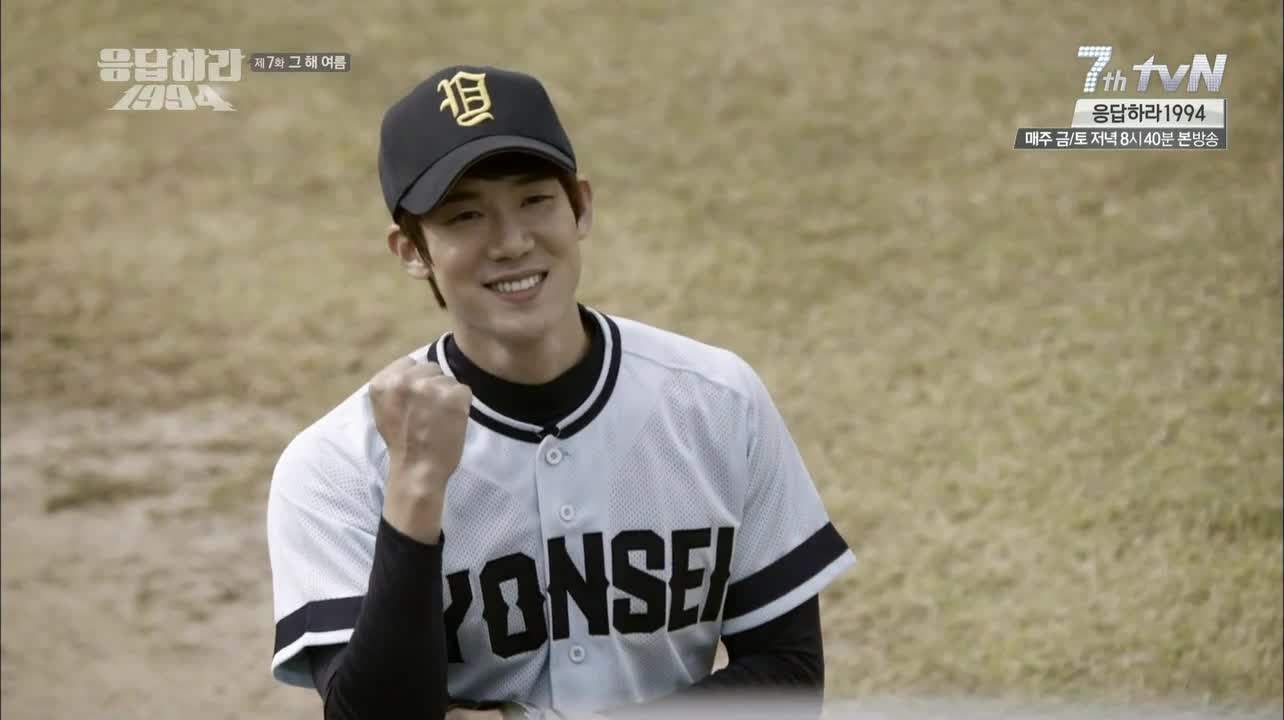 The writer of Reply 1994 did this fantastically through the character of Chil-bong (Yoo Yoon-seok). The actual pairing of the show was subtle and kept hidden, while building up Chil-bong as the definitive husband of the heroine. Chil-bong received all the attention, just as the main lead would; his cute, devoted character earned him and the heroine many fans. It was only towards the end of the drama that it was revealed that he wasn’t, in fact, the husband of the heroine. Frankly, the levels of shock and agony that this revelation brought upon many fans was glorious and amusing.
The writer of Reply 1994 did this fantastically through the character of Chil-bong (Yoo Yoon-seok). The actual pairing of the show was subtle and kept hidden, while building up Chil-bong as the definitive husband of the heroine. Chil-bong received all the attention, just as the main lead would; his cute, devoted character earned him and the heroine many fans. It was only towards the end of the drama that it was revealed that he wasn’t, in fact, the husband of the heroine. Frankly, the levels of shock and agony that this revelation brought upon many fans was glorious and amusing.
Undeniably, it’s unlikely such a scenario would be relatable to a large proportion of the viewers. The intense, crushing feelings that the fake build-up causes are not probable in our relationships or lives. Such a second lead trope, though, is the one that keeps us in our seats. It’s the one that intrigues us and brings out the feelings of betrayal that only shows and dramas could ever. It wouldn’t be right to say that the second lead is the one we fall in love with but rather that the plot reversal draws us in through these characters and keeps us interested in the drama, making them essential for the progress of the drama.
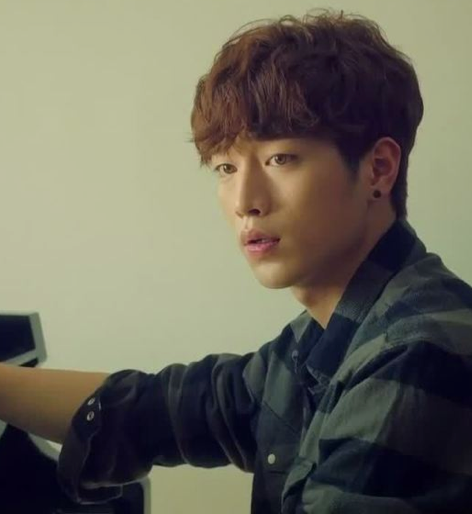
Sometimes it’s better that the second lead doesn’t get the girl or boy of their dreams. In the midst of unrealistic plots and subplots, the second lead not getting the heroine grounds us keeps an element of realism in the otherwise fanciful storylines. Baek In-ho (Seo Kang-joon) of Cheese in the Trap brings about this pragmatic component into the drama wonderfully.
In-ho and the heroine had amazing chemistry. He was accustomed to her little quirks and their playful relationship could make one smile fondly at their screens. He looked out for her as much as he could, and although he wasn’t so much of a smart character, he made for an endearing character. In the end, they (unsurprisingly) don’t work out, but In-ho is shown as trying to overcome his personal trauma and grow as a person. As a person who had felt great disadvantage because of his trauma, his interaction with the heroine and through her encouragements, this step forward shows a development in his character.
The idea is that we may not get everything, or everyone, in our lives but sometimes that’s okay – we should be our own priority. It’s a message that isn’t shown often enough, but such a drama is what makes the drama real and true to life. It’s acceptable if we don’t get together with the ones we like, as long as something good and beneficial has come out of the experience of knowing them. Considering how teenagers are a part of the audience of K-drama, this influential message is important in the building of their self-perception.
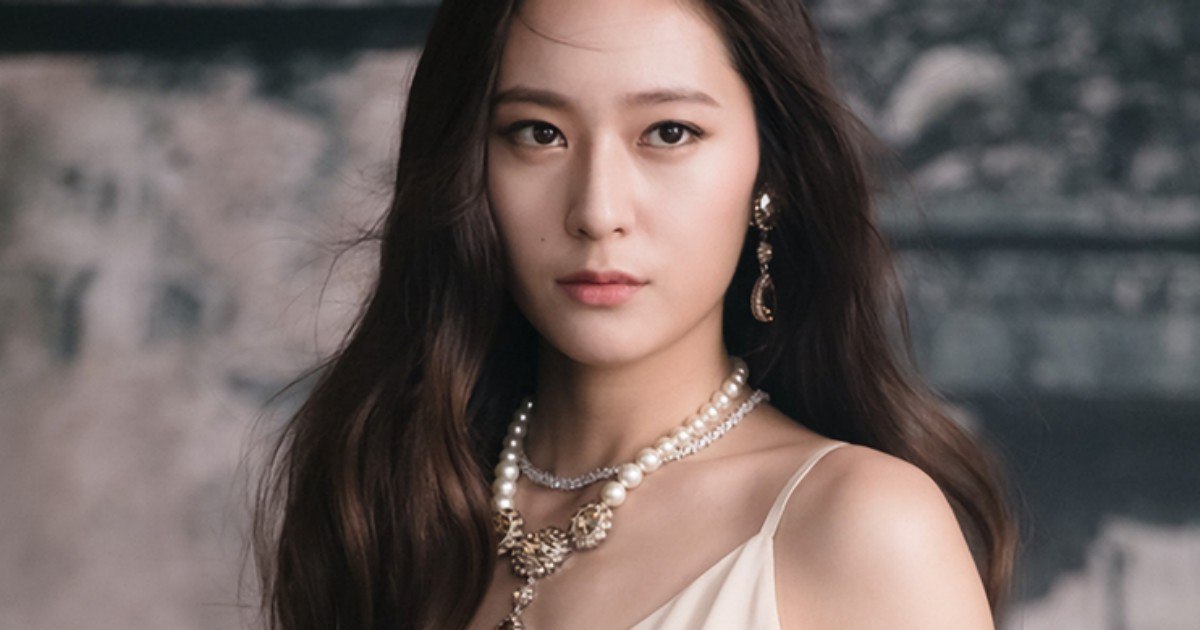 Another significant message that storylines of second leads reiterate is that the one we like may actually not be The One we’re looking for. While it may seem earth-shattering and agonizing that the person we like doesn’t like us back, there will be someone better waiting for us at the end of the road. The second lead’s subplot gives us hope that, eventually, things will turn out well and better. Like The Bride of the Water God’s Moo-ra (Krystal), the second lead usually has everything you would want and more – looks, money, personality – except for the love of her life. At the start of the drama, Moo-ra is the typical second lead. She has power, money, and is gorgeous. Oh, and she’s infatuated with the lead character, always watching out for him and making sure his life has as little hurdles as possible.
Another significant message that storylines of second leads reiterate is that the one we like may actually not be The One we’re looking for. While it may seem earth-shattering and agonizing that the person we like doesn’t like us back, there will be someone better waiting for us at the end of the road. The second lead’s subplot gives us hope that, eventually, things will turn out well and better. Like The Bride of the Water God’s Moo-ra (Krystal), the second lead usually has everything you would want and more – looks, money, personality – except for the love of her life. At the start of the drama, Moo-ra is the typical second lead. She has power, money, and is gorgeous. Oh, and she’s infatuated with the lead character, always watching out for him and making sure his life has as little hurdles as possible.
Mid-drama, the second male lead starts to win her over. Unlike the hero, he pays attention to her whims and problems, and does his best to help her out. He calls her out when she’s in the wrong, and encourages her in whatever endeavours she tries to accomplish. Over the span of Water God, Moo-ra realises that the underdog might be the better one for her, and that he cares for her in a way the hero never did or would. Without a question, the main plot of gods on Earth may be fantasy, but a subplot like Moo-ra’s is a great reminder of the fact that there are, indeed, many fish in the sea. Mr. Right might actually be Mr. Perfect, but he also may be Mr. Wrong-for-us. Such a character trope drives home the idea that the ideal person in general may not be the ideal person for us.
Second leads may cause us heartache and pain, but the realism of their plots ground us to reality. While we chase after escapism through K-dramas, this element of pragmatism divides an unrealistic and uninteresting drama from an unrealistic but relatable drama. Not only do these characters echo back important sub-messages, they help in bringing the drama to life. Otherwise, the predictability of these dramas may bore us. Just like you can’t appreciate happiness without sadness, you can’t appreciate the love between the main couple without the melancholy of the second lead.
(YouTube, Images via KBS, tvN)

